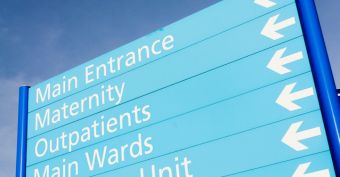This month we shine the spotlight on Elizabeth Wickson, Senior Associate at Medical Accident Group.
1. What type of legal advice do you provide?
I specialise in investigating concerns that people have with their medical treatment, and help them to understand what has gone wrong. I assist them in achieving the necessary compensation to get their lives back on track.
Part of my role involves supervising a team to ensure that every new enquiry to the firm is dealt with sensitively and efficiently. Even if a medical negligence claim cannot be pursued yet, I can give you advice about how to complain.
2. Why did you choose your specialism?
I started my legal career on the other side of these cases – as a solicitor defending catastrophic personal injury cases, specialising in inquests and health and safety prosecutions. I quickly realised that my vocation lay in wanting to help the people who came to harm through no fault of their own.
This experience gave me a unique insight into both sides of the litigation, which enables me to help my clients understand and navigate the legal journey.
3. What makes Medical Accident Group different to other clinical negligence/personal injury law firms?
Each of the individuals who work in our team have specialisms which enables us to offer expert advice on even the most complex clinical negligence claims. Our team are encouraged to support the local causes we really care about, which align with our specialisms. We are a supportive presence in the local community, but also advise clients all over the country.
4. What is your most memorable outcome for a client? And Why?
My most memorable outcome for a client happened recently, where there was a failure to treat sepsis. Sadly, a family came to me after their grandmother had died as a result of paramedics missing key sepsis indicators. Had these key indicators been recognised, her death would have been avoided. I helped the family achieve over £100,000 in compensation, but that is not what mattered most to them. With our advice they were able to use the case to raise awareness about the importance of identifying and treating sepsis. They have since donated money to the UK Sepsis Trust to help ensure standards are improved. I was incredibly inspired by their drive to ensure their tragedy had a positive impact.
5. What is your one tip to someone who may have suffered medical negligence?
If you are unsure about the advice you are being given, do not hesitate to ask questions and when you think things have gone wrong, make a complaint. If a hospital is involved, contact their Patient Advice Liaison Service (PALS). They can be a good first port of call to understand why things have gone wrong and help ensure you get the necessary follow up treatment.




